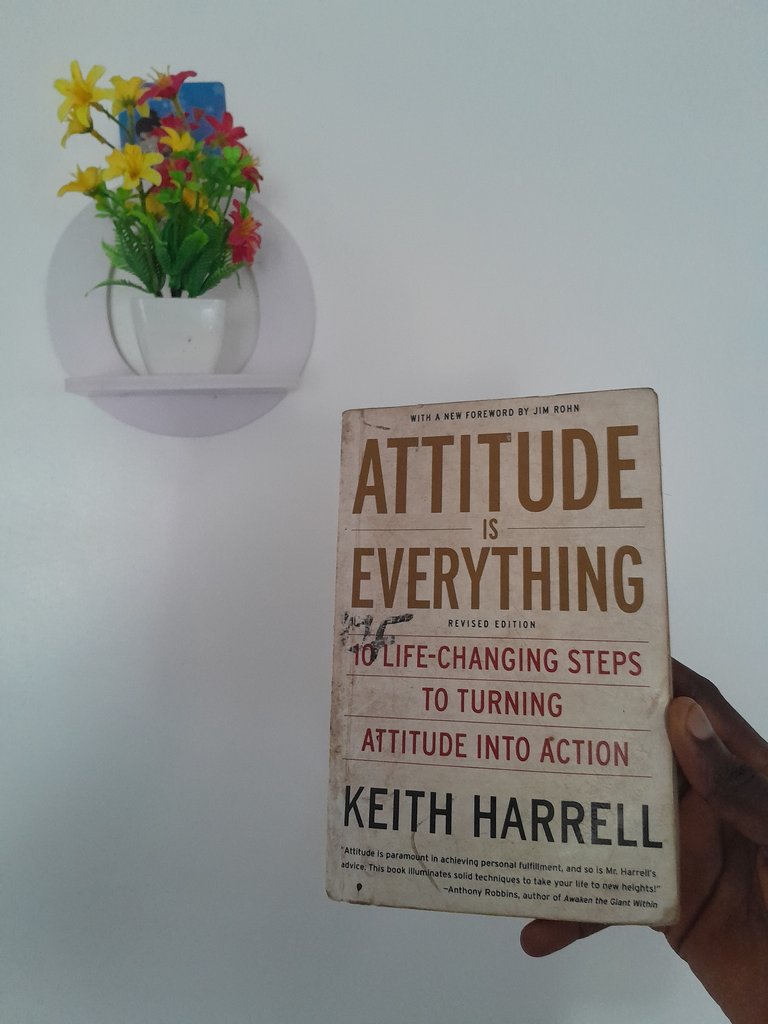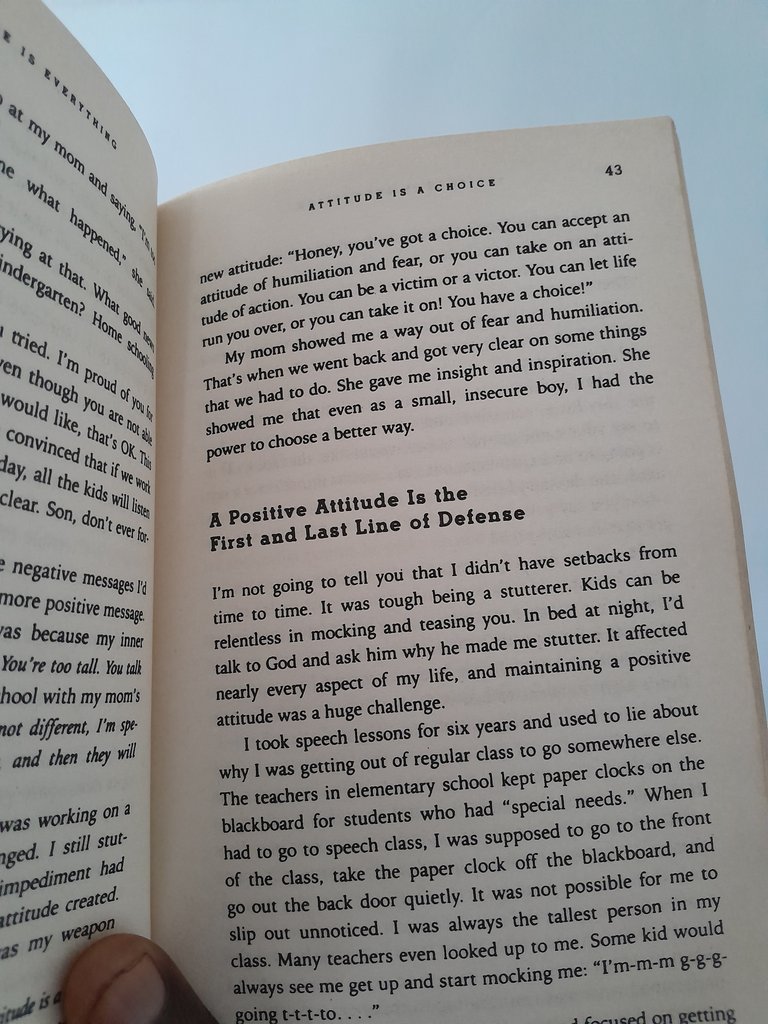Book Review: Attitude is Everything
I remember vividly that I first read this book a couple of years ago during my undergraduate days. I think it was my final year. That year, I was going through some difficulties in life and dealing with things around me that I couldn't control. So, I decided to search online for a book or some motivational content that could help me out.
The book Attitude Is Everything by Keith Harrell is a powerful guide for anyone seeking personal and professional growth. Harrell, who started as a sales trainer and became a well-known motivational speaker, reveals that the key to success isn't just skill or intelligence—it's attitude. Our attitude shapes us and helps us grow. This book reminds readers that with the right mindset, anything is possible, regardless of the obstacles life throws our way.

The foundation of Harrell's message is simple but impactful: change your attitude, and you change your life. According to Harrell, attitude is like a mental compass; it determines how we see the world and react to challenges. He introduces practical principles that encourage readers to consciously shape their outlook as it will harness positivity to overcome negativity and self-doubt. Each chapter breaks down actionable steps to reframe our mindset and unleash our true potential. Consequently, this makes the book a manual for success and fulfillment through cultivating the right attitude.
One of the most important principles in Attitude Is Everything is Harrell's idea of "Self-Motivation." He encourages readers to take control of their inner dialogue. The voice we all carry inside our heads can either lift us up or bring us down, depending on what we choose to believe. The author teaches that self-motivation begins by feeding ourselves positive thoughts. Rather than dwelling on past failures or doubts, he also suggests focusing on what’s possible. Applying this principle in our daily lives could be as simple as starting the day with affirmations or celebrating small accomplishments to build confidence.
Another significant principle is "Confront Your Fears." The author addresses the natural human tendency to avoid things that intimidate us. Whether it’s fear of failure, rejection, or even success, these fears can prevent us from seizing opportunities. Instead of letting fear hold us back, he advises us to confront it directly. This might mean stepping outside our comfort zone at work or trying something new in personal relationships. By breaking down fear into smaller, manageable steps, Harrell shows that it’s possible to build courage over time. This happened to almost everybody. At a particular point in time in my life. I fear failure more than anything. Nobody wants other people see them as a failure or inadequate in some area. However, we can’t be 100 perfect. All we have to do is working towards perfection at all times.
The author also emphasizes "Taking Responsibility" for our attitude and actions. He argues that people often blame external circumstances for their situation, but real empowerment comes from owning our decisions and mindset. Rather than seeing challenges as setbacks, he encourages viewing them as lessons. This shift in perspective is essential for anyone wanting to grow and adapt. In our daily lives, this principle means not letting setbacks define us. While I was in school, I remember having to take responsibility for my actions instead of assigning blame to others which helped me a great deal in dealing with my situations as at that time.

It is also important to know the sections in the book that talked-about cultivating "Gratitude." Harrell explains that when we’re grateful, we see abundance instead of lack, which fosters a sense of contentment. Gratitude isn’t just an emotional response; it’s an attitude that, when practiced regularly, can transform our outlook on life. Harrell encourages readers to incorporate gratitude into their routines by keeping a gratitude journal or making a habit of expressing appreciation to others. We should learn to always appreciate people no matter how small or insignificant they do for us.

Another valuable takeaway is the lesson on "Developing Resilience." The author stresses that life will inevitably throw obstacles our way, but how we choose to respond is what truly matters. He advocates for resilience as an attitude that empowers us to bounce back from adversity. This principle is particularly relevant in a world where uncertainty is a constant. Developing resilience in daily life can mean viewing challenges as opportunities to learn or setting goals despite obstacles, knowing that setbacks are only temporary. It is worthwhile to know that not everyone can have it easy while going up in life. Life will certainly throw itself at us in a way we never expected it.
a very good kind of self development book. I agree about Attiyude can change someone's life. it is very very impactful
Thanks for the review
It is a book I can boldly recommend for someone going through life difficulties or who wants to change their life significantly.